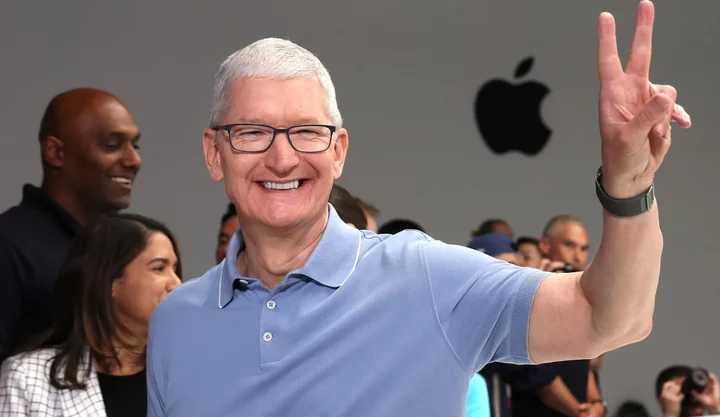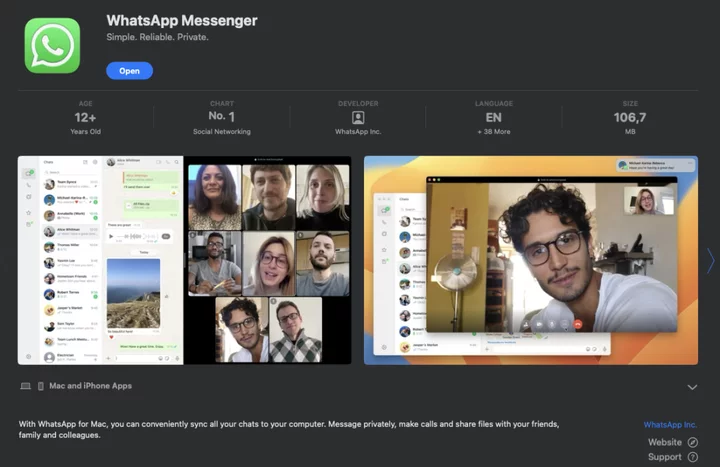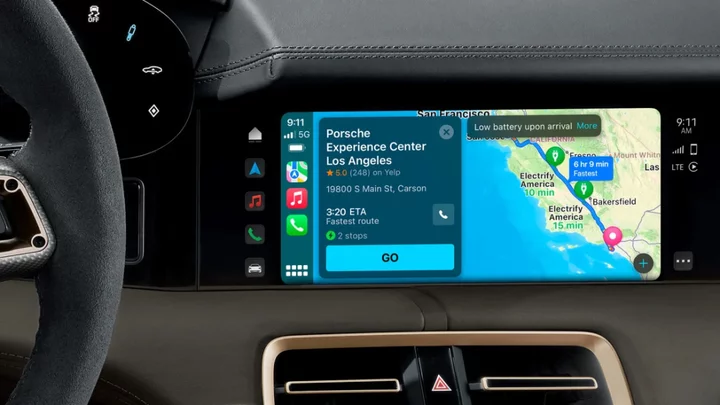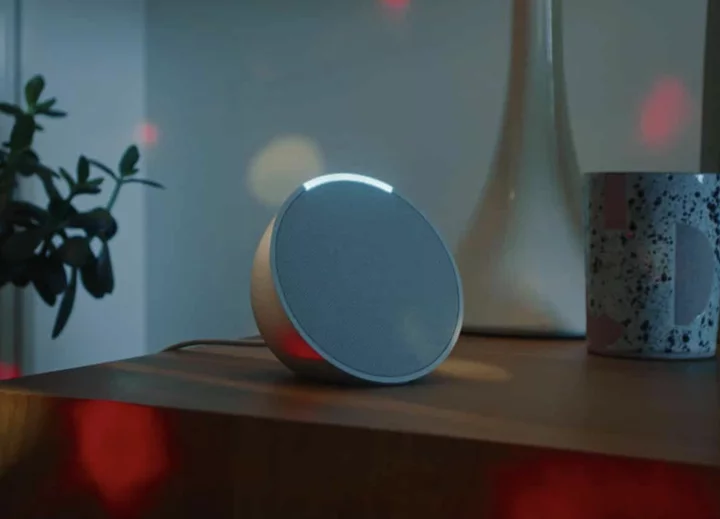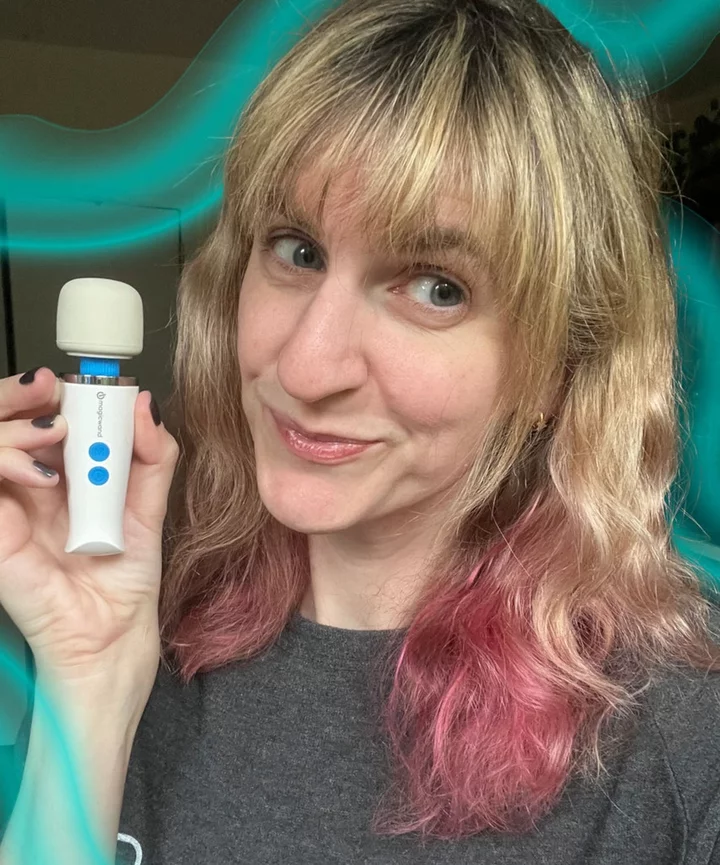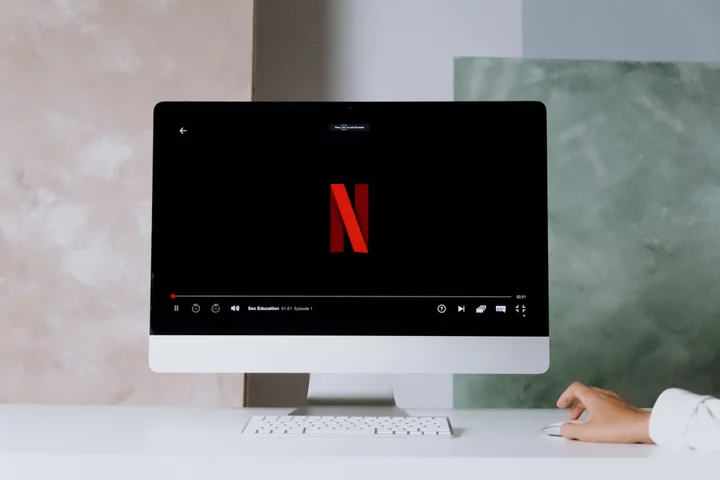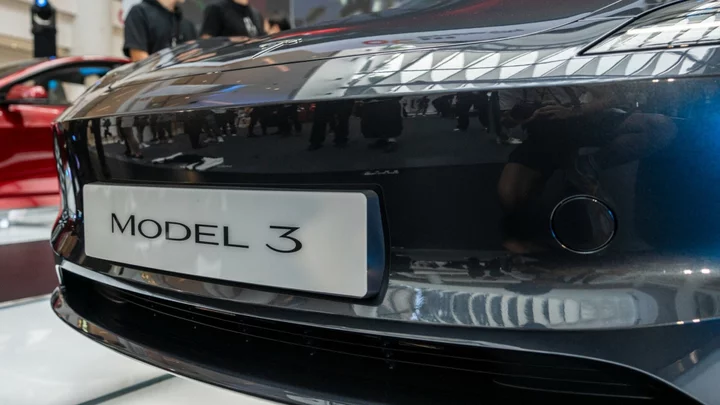There are, roughly speaking, two Silicon Valleys.
One resembles the kind of pickup soccer game, usually with very young kids or drunk adults, where every player clusters in a panic around the ball. In 2023, this ball is generative AI, and the cluster began when everyone saw those eye-popping adoption numbers on OpenAI's ChatGPT product. Investors decided AI was hot, rewarded stocks accordingly, and hundreds of tech companies — including most of the big guys — began to chase the money.
And then there's the second Silicon Valley, which is composed of ... Apple, pretty much. In the the chill Cupertino bubble of the world's wealthiest company, where products are ruthlessly iterated for years if not decades before they see the light of day, short-term tech trends are studiously ignored.
The soccer scrum says that VR/AR headsets are yesterday's news; Apple launched one anyway. It says AI is going to change everything — and Apple did not mention the term once in its WWDC keynote Monday, even when it had ample opportunity to do so, and even when not doing so arguably had an adverse effect on the stock price.
SEE ALSO: Apple Vision Pro: 6 things we love and 3 we don'tGoogle is part of the first Silicon Valley, which is why last month's Google I/O keynote was a cringefest of seismic proportions. AI was mentioned exactly 99 times in 2 hours, and with most of those mentions, you could hear the creak of the shoehorn. The Pixel, for example, was not referred to as a smartphone. It was "conceived as an AI-first mobile computer" that "delivers truly personal AI;" it had been "leading the way in AI-driven hardware experiences" and was now the "only phone with AI at the center." Drink!
Now here comes Tim Cook with the WWDC 2023 keynote. Exactly the same audience (developers, analysts, journalists). Exactly the same pervasive AI hype-filled atmosphere. Almost the same amount of time for the presentation. And no mentions of AI — literally, zero. Given how much the company obsesses about its messaging, this was clearly intentional.
Saying the loud part quietly
For example, the phrase "machine learning" was used seven times at the WWDC event. AI is nothing but machine learning! There's machine learning in Apple Notes-based PDFs, in the new app Journal, in AirPods' noise detection; creating iPad lockscreens via LivePhoto uses "an advanced machine learning model," Apple software chief Craig Federighi said. If you're Google and you have no shame, you're calling that "AI wallpaper."
Or take Autocorrect in your iMessages, which uses a "state-of-the-art ... Transformer language model," Federighi informed us. You know what else is a state-of-the-art Transformer language model? ChatGPT! It's a bit nerdy, but it's also the main breakthrough that makes us feel like such AI software is actually talking back to us.
SEE ALSO: Well, duck it: The Apple keyboard will finally let you curseIf AI was cool, surely the ultimate cool-chasing dad-joking tech exec would be saying it as often as possible?
Apple even had the opportunity to say that the Vision Pro headset was powered by AI. Instead, it "uses an advanced encoder-decoder neural network." A neural network is a form of AI that attempts to copy the information-crunching style of human brain! Given that this company likes to keep its marketing language supremely simple, this was all starting to seem like a deliberate choice: don't mention the A-word.
Why? Simple. Apple gets a simple truth that Google and the scrum of companies are overlooking: to the average user, AI is scary. You shouldn't be touting how it is used in your products; you should be touting how you're going to defend us against it.
Federighi made this point subtly — not on stage, but on the page. In a postgame interview with Fast Company, the software chief raised the specter of malign AI-driven deepfakes: your loved one supposedly calling you because they forgot their password, for example. "We want to do everything we can to make sure that we’re flagging [deepfake threats] in the future," Federighi said. (He still didn't use the A-word.)
Apple sticks to the playbook
This has been Apple's tactic for years. Cook knows millions of users are worried about their privacy in a world where almost every tech company — that scrum again! — wants to sell your personal data. Apple has no need to sell your data; its percentage is in selling you expensive devices. So if that sense of security can differentiate the iPhone, the iPad and the Mac, then you can bet Apple will be pushing it hard.
Same goes for AI. Let the Googles of the world attempt to impress us with their "AI-first mobile computers." The iPhone is, and will remain, the most secure smartphone you can buy. There's a language model driving every autocorrection on iMessage, but none dare call it AI. The brief dip for Apple stock after the event, from $181 to $178, was worth it even if it was entirely AI-related (more likely, traders were incredulous at the price of the Vision Pro).
This is, after all, a stock that just hit its all-time high a few hours earlier. Cook simply doesn't care, nor should he.
Perhaps, one day when the hype has died down, Apple will retool Siri so she looks and sounds more like ChatGPT. Perhaps all that machine learning and neural networking will add up to something next-level that the company touts in as soothing a tone as it can. But don't hold your breath. Life is very different, here in the spaceship at the center of the second Silicon Valley.

